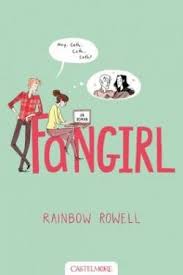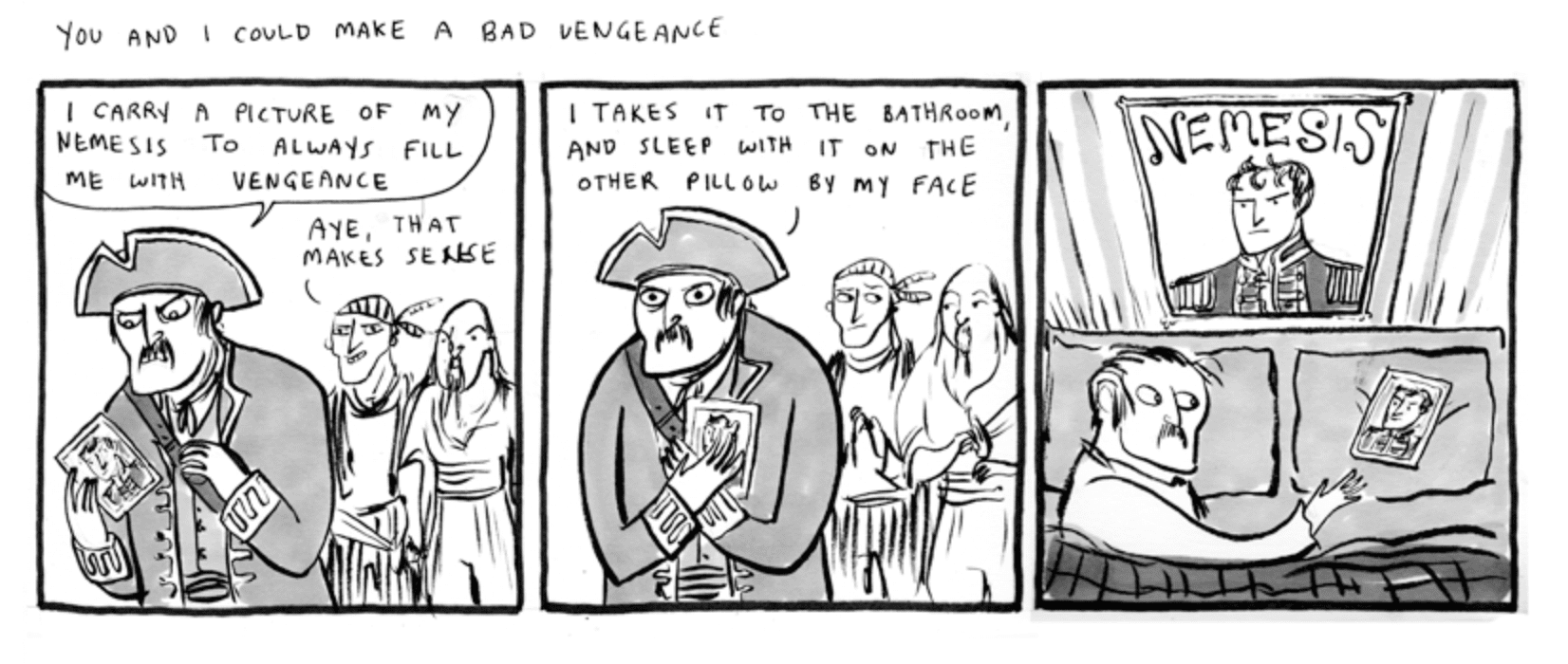Carry On is a 2015 young adult novel wrote by Rainbow Rowell. It is the story of Simon Snow, the Chosen OneTM of the British magical world. Since he had joined the Watford School of Magicks, Simon has had to deal with his enormous and uncontrollable power. With it, he tries to put an end to the reign of terror of the Insidious Humdrum (a sort of dark entity if you’d like). While he is the protégé of the headmaster of the school (of course), Simon isn’t really living his best life. First, there are the perpetual battle with the threats sent by the Humdrum. But there is also the constant bickering and fighting with his roommate and arch-nemesis, Tyrannus Basilton Grimm-Pitch (whom I will call Baz, as the book does).
Synopsis
When the book opens, Simon is starting his final year at Watford and it doesn’t look like it’s going to be his best year. Things are weird with his girlfriend Agatha. He’s just discovered before the summer holidays that the Humdrum is walking around looking like he did at age eleven. And his roommate is missing, among an impressive amount of other problems.
Will Simon survive yet another year of attacks by the Humdrum? What is wrong with Agatha? Why are the politics of the world of mages going so wrong? What exactly is the Humdrum? Where is Baz? That’s just a handful of the questions the story will have to answer.
And you now what? Carry On is super extra good. It really deserves the highly positive reviews it got. I wanted to read it for one or two years now and I have finally did it a week ago in one sitting on a plane. And let me tell you, Carry On made my journey more than agreeable. Because for me, this story works on nearly every aspect. Especially how it fits within the fantasy genre.
Parody done right
I don’t think you need to have a PhD in contemporary literature to get that Carry On is a Harry Potter parody. After all, where would be our pop culture be without Harry Potter? So is it surprising to see more official and professional cultural productions taking inspiration from it? Or having fun with it?
It’s also pretty evident that Rainbow Rowell had a lot of fun producing Carry On. She wrote this story as a fan of another story. After all, Carry On is the novelization of a fake book series she invented (clearly as a parallel to Harry Potter) in another of her works: Fangirl. Of course there are differences. Some of the characters aren’t the same and the fan ship from Fangirl is the canon ship of Carry On, etc.

This strange creation of Carry On is, for me at least, a guarantee of good quality for a parody. Parody should only come from two different places: absolute distaste for a cultural product that you want to publicly eviscerated because you think it should not receive the blind cult following it got. Or, absolute love for a cultural product and you just want to share the fun with others.
Carry On comes from the second place and it shows. You will have great fun reading it, even if, like me, you haven’t read Fangirl or aren’t a fan of Harry Potter. The story never takes itself seriously (I mean the ‘villain’ is called the Insidious Humdrum). It makes a lot of jokes about its world. The characters are very interesting and diverse but, with the exception of two POVs, they will never be overbearingly serious.
Carry On also has the good taste of being a book of the 21st century. It utilizes actual diversity in its characters. The two main boys are queer (I would be more precise if things were more precise with Simon but this big goof just doesn’t know! The cheek of this boy!). The main female character, Penny, Simon’s best friend, is a WoC (her mother is Indian). She is also my favorite character and she is perfect, so no critiques of Penny will be accepted here. It isn’t just the subtext, Carry On presents an actually diverse world of mages.
Tropes
Rainbow Rowell clearly had a lot of fun with tropes while writing Carry On.
Subversion
As we are talking parody, there is a lot of trope subversion. The most obvious one is the Chosen One. Let’s be real, being the Chosen One must suck. Not only because ‘with great powers come great responsibilities’ but because it turns you into a danger magnet. Every time the big bad of your universe is trying something nefarious, it is up to you to take care of it. That’s without counting the fact that you are very likely their favorite target. There are no holidays, no quiet evenings, etc. You are on deck every moment.
So it is only natural that your social circle would shrink dramatically and rapidly. Not because you will be heroically pushing people away to protect them but because most people have a survival instinct and won’t stay close to a perpetual source of danger. That is exactly the situation of Simon, who has two close friends in his life, is quite tired of being the Chosen One, and realizes that his life won’t actually start until the Humdrum disappears. Simon is a tired Chosen One, and that’s not only clever storytelling, it’s also funnily executed.
The arch-nemesis trope is also nicely played out. Baz and Simon’s relationship is very much like this:
And you might say that’s an intensely weird obsession to have for someone you have no romantic feelings for, and you’d be entirely correct. Baz and Simon are in love (the original Baz and Simon were suppose to stand in for Draco and Harry). They are just very bad at being in love with each other for half of the book.
Finally, my favorite subversion of a trope is that of “magical condition as a stand-in for a real life marginalized identity.” Baz is a vampire and supposed to hide his craving, that started around puberty, from the world because he won’t be accepted. His family is adamant about not really talking about it and even advise him to see a therapist. You see how vampirism might be a stand in for homosexuality in another author’s hands. Well it’s not. Baz is gay. And a vampire. Vampirism doesn’t stand for gayness, even if everything could have been coded as a metaphor for it.
Indulgence
But Carry On being a parody doesn’t mean it can’t be serious or that every trope of the fantasy genre must be subverted. Rainbow Rowell is writing a parody yes, but she is also writing an epic and interesting story. So while she has fun with some tropes she also “indulges” in others. Here, I am thinking specifically about “saving the world by agreeing to a great personal sacrifice” for Simon. His final arc is generally very dramatic, and while the book never loses its humor, you really get to understand what it cost Simon to make the choice he made.
There is also the idea that the villain entity is so monstrous and wrong that its (his? their?) very existence is a tragedy in itself. I was sorry for the Humdrum. I know I was supposed to be because Simon felt sorry for it and apologized to it. It was dreadfully well done.
Another trope that I very much liked was the “by trying to bring about the positive consequences of a prophecy you actually bring about the dreadful one.” The main plot revolves around a prophecy that you, the reader, slowly uncover. While Rowell twists it a bit, it is still very much in line with the kind of twists that exist in fantasy. That doesn’t mean that the prophecy, how it came to happen, and its consequences aren’t interesting or dramatic. Far from it.
So yes even if she plays with tropes and acknowledges their existence even in universe, Rowell likes fantasy enough to build a coherent fantasy story.
Conclusion
Carry On is a story that follows interesting characters. It is a excellent parody of Harry Potter, its genre, and the tropes that usually come with it. But it is also a story with heart. It’s a bitter sweet coming of age story in which adults are presented as flawed but never as separate from the young protagonists, either narratively or emotionally speaking.
Carry On is a tour de force that turns a parody into something that deserves to be kept closed to your heart for its own merits. It will leave you wanting more. And there’s excellent news on that front because a sequel, Wayward Son, is coming out later this year.


